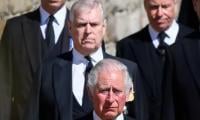Rawalpindi :The civil society including the Coalition for Tobacco Control Pakistan (CTC-Pak) and TheNetwork for Consumer Protection (TN) have appreciated Pakistan National Heart Association (PANAH) for filing a complaint against the tobacco industry, and the Federal Ombudsman for taking a decision in the best interest of public health.
The Federal Ombudsman, in his September 23 decision on reinforcing the priority of public health over business, directed the ministries of National Health Services (NHSRC) and Finance (MOF) to implement Article 6 of WHO’s Framework Convention on Tobacco Control (FCTC) (taking pricing and tax measures to reduce the demand for tobacco) within 30 days.
The civil society urged both the federal ministries of NHSRC and Finance to implement the ombudsmen decision without any delay in a joint press conference held at Rawalpindi Press Club here.
General Masood Ur Rehman Kiyani, the Chairman of PANAH, told that in the light of recent decrease of tobacco tax in the budget, PANAH filed an application filed to the Federal Ombudsman office alleging that the ministries had failed to implement the FCTC, an international treaty signed by 128 countries, including Pakistan. “FBR’s introduction of third tier of taxation slab and the decision to lower the tobacco tax was based on statistics provided by the tobacco industry was against the spirit of Articles of FCTC and in the favor of tobacco industry,” Kiyani said.
General Ashraf Ali Khan, Ex-Chairman of PANAH, said, “The tobacco industry has manipulated the facts for low sales and influenced the FBR into lowering the taxes.” As a result of this complaint, eight departments of the government were summoned by the Federal Ombudsman. executive vice president (PANAH), Senior Vice President (PANAH) and the general Secretary (PANAH), General Kamal Akbar (Patron PANAH), General Ashwar Khan (Ex-President PANAH), Doctor Abdul Qayyum Awam (Executive Vice President, PANAH), Dr. Wajid Ali (Tech Advisor, PANAH) and Mian Asghar and representatives of CTC-Pak and TN in the capacity of advisors appeared in the court room to bring their concerns supplemented by evidence to highlight this maladministration of the ministers.
The civil society also elaborated the court about the harms of tobacco and how not abiding by an international treaty can affect the nation to the surface. The representative of FBR failed to produce any logical argument to defend as to why taxes on cigarettes were lowered and all the information with the FBR turned out to be tobacco industry data only.
Sana Azmat Rana, a representative of TheNetwork, a consumer and health rights organization working on tobacco control, said “FBR considered PTC and PMI arguments while preparing the budget proposal for 2017-18 and utterly overlooked the NHSR&C’s recommendations for increase in tobacco taxation. Prior to budget announcement, recommendations by Ministry of Health were sent to the Finance Ministry, the Minister of State for NHSRC, Saira Afzal, had asked for an increase in the Federal Excise Duty on lower slab of all brands of cigarettes from the current Rs32.98 to Rs44 per pack of 20 cigarettes. However, the Ministry of Finance ignored the proposed suggestions and made decision by giving priority to arguments given by tobacco industry. FBR should not use data provided/funded by tobacco industry,” she said.
Khurram Hashmi, the National Coordinator of CTC-Pak, a coalition of more than 250 civil society partners working on tobacco control issues in Pakistan, “This is not the first time tobacco industry manipulated the government, feeding them with false information. The implementation of enhanced 85% pictorial health warning (PHW) is also compromised due to the industry’s influence over the ministries. Despite the claims by the industry, their statistics gleaned from the audit reports astonishingly reveal the tax collection for the year 2016-17 is 60 billion only in comparison to 155 billion of the year 2015-16. Ironically, instead of raising tax, MoF significantly reduced tax on cigarette packs, making cigarettes more accessible to public, especially youth and children.”
“We urge the government of Pakistan and the chief justice of the Supreme Court to enforce all laws on tobacco control and to ensure tax on tobacco is increased as per these instructions while repealing the previous finance act that lowered tobacco taxes,” the tobacco control representatives demanded at the press conference.
A general view of Islamabad city can be seen in this picture released on January 5, 2023. —...
A portion of fish and chips from a fish and chip shop is pictured on a plate in Manchester, Britain, May 18, 2022. ...
Islamabad Capital Territory Police stand guard on the road of Islamabad. — AFP/FileOver the past decades,...
A group photo from the USAID’s Higher Education System Strengthening Activity's impactful four-day training on...
The picture shows Islamabad police personnel in this undated photo. — AFP/FileIslamabad : The capital city of...
Prof Ayaz Qureshi from University of Edinburgh,UK addressing an event.— Facebook@iubwp/File Islamabad : Prof Ayaz...







